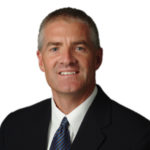As a teenager, I needed course correction. My parents sent me 1,150 miles away to North Dakota to work on my Uncle John’s farm in Benson County. Uncle John started out as a farmer with ten acres in the late 1930s. When I served with him he owned 7,000 acres.
Benson County, where the farm was situated, is mostly flat, flat, and flat. It comprises an area of roughly 1,439 square miles. The farm consisted of somewhere around 11 square miles. It abutted a large body of water known as Devil’s Lake. In addition, the farm was proximate to the Spirit Lake Dakota Reservation located on the southern shores of Devils Lake. The people represented the Pabaksa, Sisseton and Wahpeton bands of the Dakota tribe.
The four people responsible for working the farm (which also had several hundred head of cattle) included Uncle John, his son Jimmy, a hired hand named Roger, and me. We rose early six days a week, worked hard all day, attended church on Sunday morning, and managed to get in some fishing now and again. When we really wanted to go crazy, we drove into the county seat of Minnewaukan to buy snacks.
One hot summer day I was a few miles from the house plowing fields with a Versatile Tractor and wide tillage hitch with tandem discs. The tractor stalled and would not restart. I sprayed ether into the carburetor as instructed, but nothing happened. I walked the few miles back to the house on dusty, heat reflecting “roads” (gravel paths).
Uncle John saw me coming. I was sweaty, tired, frustrated, and felt a little guilty.
“Needed a walk, did ya?”
“Tractor stalled and wouldn’t start. I cannot believe it. Stupid thing is stubborn.”
“So, are you mad?”
“Yes.”
“What kind of world did you think you were born into?”
“Huh?”
“In this world things break. We get our satisfaction from fixing broken things and persevering.”
My Uncle John never enjoyed formal education beyond the third grade. He would say, “And I haven’t used up all that yet.” This moment was one of many that demonstrated how much wisdom a person can gain apart from schooling.
The World We Were Born Into
There is an ancient song that reads:
“O Lord, what is man that You regard him,
or the son of man that You think of him?
Man is like a breath;
his days are like a passing shadow.”1
Human beings are fragile, and especially so at birth. Throughout human history, children have succumbed in high percentages from birth to five years of age. One study of burials in the Negeb suggests that in ancient times only 10 percent of people lived to age 35, mostly because 50 percent of children died before age five.2 Biologist and gerontologist Caleb Finch describes the average life expectancy in ancient Greek and Roman times as short, with people living for approximately 20 to 35 years.
“Unhygienic living conditions and little access to effective medical care meant life expectancy was likely limited to about 35 years of age. That’s life expectancy at birth, a figure dramatically influenced by infant mortality—pegged at the time as high as 30 percent.”3
Life expectancy is an average. If you have two children, and one dies before their first birthday but the other lives to the age of 70, their average life expectancy is 35.
Once we eliminate the incidence of child mortality, life expectancy has remained fairly stable throughout recorded history. That is, life spans have remained steady. There is, of course, a distinction between life expectancy and life spans.
Another ancient song indicates the fact that life spans in ancient times looked similar to today’s results:
“Our days may come to seventy years,
or eighty, if our strength endures;
yet the best of them are but trouble and sorrow,
for they quickly pass, and we fly away.”4
For all of us fortunate enough to reach the age of majority, we are not yet out of the woods. Life can be full, at times, of trouble and sorrow. Pliny melodramatically wrote, “Nature has, in reality, bestowed no greater blessing on man than the shortness of life.”5
As human beings, we live in a world full of dangers, mishaps, potential injury, an alarming number of pathogens, and our own tendency to take undue risks. Misery can keep us company in an inordinate number of ways.
Consider this list from the CDC6 regarding the leading causes of death (and incidents) in the United States in 2019:
- Heart disease: 659,041
- Cancer: 599,601
- Accidents (unintentional injuries): 173,040
- Chronic lower respiratory diseases: 156,979
- Stroke (cerebrovascular diseases): 150,005
- Alzheimer’s disease: 121,499
- Diabetes: 87,647
- Nephritis, nephrotic syndrome, and nephrosis: 51,565
- Influenza and pneumonia: 49,783
- Intentional self-harm (suicide): 47,511
Fixing Broken Things
In independent insurance distribution and financial services, we bring people the tools to fix brokenness before it happens.
Right Tools
Consider the basic financial tools that people need to live their ordinary lives:
- Savings accounts and emergency funds
- Health insurance
- Disability insurance
- Life insurance
- LTCI
- Property and casualty insurance
- Education accounts
- Retirement accounts
- Annuities
What happens if people do not have/own these tools?
First example:
In 2009, in the United States, almost 3 million homeowners received at least one foreclosure filing. Lenders generally begin the foreclosure process once homeowners are delinquent by two or three months. The recession triggered a spike in unemployment. A foreclosure notice usually follows a pink slip by three to six months.
These people could not make three of their monthly mortgage payments. The tool they were missing? An emergency fund.
Question: Are you, as an independent financial professional, advising your clients to maintain an emergency fund?
Just 40 percent of Americans are able to cover an unexpected $1,000 expense with their savings according to a 2019 survey from personal finance website Bankrate.7
An emergency fund is a separate savings account used to cover or offset the expense of an unforeseen situation. Emergencies, by their nature, are unpredictable. When they happen they can derail your client’s financial stability. A sudden illness or accident, unexpected job loss, or even a surprise home or car repair can devastate your client’s life if unprepared. The size of an emergency fund will vary depending on your client’s lifestyle, monthly costs, income, and dependents, but the rule of thumb is to set aside at least three to six months’ worth of expenses.
Second example:
The Social Security Administration says, “Just over one in four of today’s 20 year-olds will become disabled before reaching age 67.”8 (Compared with the estimated one in nine of today’s 20-year-olds who will die before reaching age 67.)
Among the most common disability insurance claims are cancer, musculoskeletal disorders, and depression.
Question: Are you, as an independent financial professional, advising your clients to purchase disability income insurance?
What would happen if your client got hurt at work tomorrow and could not go in for a few months? What resources would the client’s family have available to carry them through that period?
What about a car accident or illness that takes a year or two for your client to recover?
Disability is a common cause of bankruptcy.
If your clients’ families rely on your clients’ incomes, then as a financial professional, looking out for your clients’ well-being, you should recommend that they buy it.
And Persevering
In independent insurance distribution, we guide people to establish the wherewithal to persevere through the hard times, lean times, or long lives.
There is a staggeringly immense lack of preparedness in the United States. As seen above, too many people have no emergency fund. Similarly, too few are even preparing to afford their lifestyles into their retirement years.
“As of June 2020, half of married retirees rely on Social Security checks for half of their income, according to the Social Security Administration, revealing a lack of cash elsewhere. That number jumps to 70 percent for unmarried people.
Just half of households, per the Federal Reserve, have any retirement accounts at all.”9
The financial services industry has poorly served a huge proportion of the American population in regard to helping people prepare for the future and the post-working years.
Question: Are you, as an independent financial professional, willing to serve the large population of people who are unable to afford your fees, or whose purchases would generate little, if any, compensation for you?
Summary
Maybe all of us in independent insurance distribution and financial services could make a great difference in more lives if we simply began asking all the people around us, “What kind of world did you think you were born into?”
In addition, maybe those of us who are comfortable need to be reminded that another painful aspect of the world we live in is inequity and disparity. As Sophia Mowlandejad wrote recently for the Fidelity Center for Applied TechnologySM:
“Financial exclusion is a reality for millions of Americans who don’t have access to useful and affordable financial products and services delivered in a responsible and sustainable way…. Exclusion runs across the financial lifecycle—impacting many different demographics. People excluded from mainstream financial services are more vulnerable to poverty, eviction, and food insecurity because it’s harder for them to build wealth, achieve financial stability, and generate better outcomes.”10
As an independent financial professional, are you willing to roll up your sleeves and begin tackling the real needs of millions of our fellow Americans, in particular the financially excluded?
Extending yourself to the least among us might get you the highest satisfaction of your career by simply helping them fix the broken things in their lives and preparing them for persevering.
References:
- Psalm 144:3-4, the Holy Bible, English Standard Version, ESV® Text Edition® (2016), copyright © 2001 by Crossway Bibles, a publishing ministry of Good News Publishers.
- Page 880, the ESV Archaeology Study Bible, copyright © 2017 by Crossway Bibles, a publishing ministry of Good News Publishers.
- Beltrán-Sáncheza H, Crimmins E, Finch C. Early cohort mortality predicts the rate of aging in the cohort: a historical analysis. J Dev Orig Health Dis. 2012;3(5):380–386. doi:10.1017/S2040174412000281.
- Psalm 90:10, the Holy Bible, English Standard Version, ESV® Text Edition® (2016), copyright © 2001 by Crossway Bibles, a publishing ministry of Good News Publishers.
- CHAP. 49.—THE GREATEST LENGTH OF LIFE, The Natural History, Pliny the Elder, translated by John Bostock, M.D., F.R.S., H.T. Riley, Esq., B.A., Ed.
- https://www.cdc.gov/nchs/fastats/leading-causes-of-death.htm.
- https://www.bankrate.com/banking/savings/financial-security-january-2019/.
- https://www.ssa.gov/news/press/factsheets/basicfact-alt.pdf.
- https://www.forbes.com/sites/advisor/2020/10/06/studies-confirm-that-half-of-americans-struggle-with-retirement/?sh=7ab29c0d6f9f.
- https://fcatalyst.com/blog/april2021/how_exclusion_affects_consumers_across_the_financial_lifecycle?utm_source=everyonesocial&utm_medium=Inclusive%20Finance&utm_campaign=Social%20Media&es_id=fa17545252.


























